
Application and Games Development (Computing) AAQ
With this course, you'll gain a practical approach to programming, ideal for those who enjoy building systems and games. During the course, you'll learn how to develop a project fr...
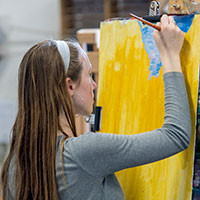
Art - Fine Art A Level
Welcome to the Visual Arts Department at BHASVIC. Fine Art is one of four subjects we offer at A-level. The first year of Fine Art is all about discovery. We want to g...

Biology A Level
A full range of fascinating topics, from the details of cell structure to entire eco-systems. You will study animals, plants and micro-organisms; the workings of their cells, evolu...

Business A Level
You will develop a critical understanding of business behaviour and the business environment by investigating and analysing real-life business successes and failures. You can then ...

Business BTEC
This vocational course will allow you to develop a critical understanding of business behaviour and the business environment by investigating and analysing real-life businesses. Yo...

Carbon Literacy Award
What is Carbon Literacy? ‘An awareness of the carbon costs and impacts of everyday activities and the ability and motivation to reduce emissions, on an individual, com...

Chemistry A Level
You will learn about atoms, compounds, acid-base and redox reactions. You will learn why things happen and why they sometimes don't! We consider entropy and free energy, the transi...

Classical Civilisation A Level
Classical Civilisation is a fascinating subject which fosters an understanding of ancient Greece and Rome. This allows for a greater understanding of our own culture and civilisati...

Computer Science A Level
Are you fascinated by the ever-evolving world of technology? A Level Computer Science is a course that's tailor-made for ambitious and creative students, creating a space for you t...
![Creative Media Production BTEC [Television and Film] this link will take you to the course details](/images/card-image/dig-media-film-2880.jpg)
Creative Digital Media Production BTEC [Digital Film and Television Production]
This practical course focuses on developing your communication, pre-production, production and post-production skills that are required for working in the film and television indus...
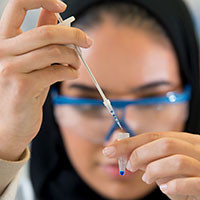
Criminology Applied Diploma
There are four areas to study: Unit 1 (year 1) Changing awareness of crime: At the end of this unit, you will have developed skills to differentiate between myth and reality when i...
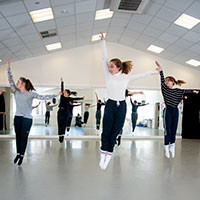
Dance A Level
This exciting course will help to develop you as a dancer, performer, choreographer and critic. You will be taught professional repertoire from some of the leading professional dan...
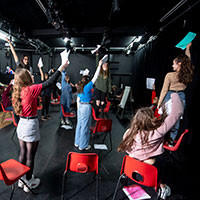
Drama and Theatre A level
The A Level Drama and Theatre course requires students to take a practical approach in exploring the techniques and methodologies that underpin the craft of acting. Additionally, s...

Economics A Level
Economics is the study of society through the behaviour of people, firms, and governments, with the aim of understanding and improving well-being and wealth in society. A level E...

English GCSE
A range of fiction and non-fiction texts that require well written analytical responses to show a confident technical understanding of how writers use words and sentences to create...

English Language & Literature A Level
You will explore a wide range of texts including novels, stories and plays, as well as non-literary writing like magazine articles, webpages, autobiography, memoirs and personal wr...

English Language A Level
A wide range of everyday spoken and written texts along with the linguistic and grammatical concepts we need to analyse and explore how people are using their language to present t...

English Literature A Level
You will explore a range of exciting and challenging literary texts, including novels, poetry and plays from across the last 500 years as well as 21st century texts, all of which h...

Environmental Science A Level
You will explore the key challenges facing our planet and how the environment supports us, how we threaten these support systems and strategies for a more sustainable lifestyle. St...

Extended Project Qualification (EPQ)
The Extended Project Qualification is a one-year course which is quite different to an A-level. It is a project based piece of work that allows you to research and write or create ...

Film Studies A level
Film Studies is designed to explore and creatively engage with all aspects of filmmaking. It involves analysis of a wide range of texts, including British, American and European ci...
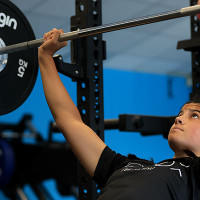
Fitness Coaching & Personal Training Level 3 Diploma
This course covers the knowledge and skills required to work in the fitness industry in fitness coaching and personal training roles. You will examine anatomy, physiology and nutri...

French A level
You will learn to communicate fluently in the language both orally and in writing. You will read and listen to authentic material in order to develop your comprehension skills and ...

Geography A level
"Geography is the study of Earth's landscapes, peoples, places and environments. It is, quite simply, about the world in which we live. Geography is unique in bridging the social s...

German A level
You will learn to communicate fluently in the language both orally and in writing. You will read and listen to authentic material in order to develop your comprehension skills and ...

Graphic Design and Communication A Level
Welcome to the Visual Arts Department at BHASVIC. Graphic Design is one of four subjects we offer at A-level. The first year of Graphic Design is all about discovery. ...

Health and Social Care BTEC
You will study human lifespan development and meeting individual care and support needs in the first year; and in the second year will focus on the skills needed to work in health ...
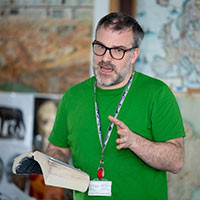
History (Early Modern) A Level
Common to each of our History courses are narratives that are full of intrigue, heroism, conflict and struggle. You will investigate some of the greatest personalities and events...
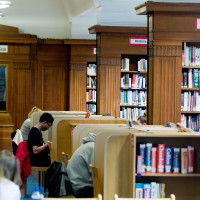
History (Modern) A Level
Common to each of our History courses are narratives that are full of intrigue, heroism, conflict and struggle. You will investigate some of the greatest personalities and events o...

History of Art A level
History of Art is a fascinating course that explores our global cultural heritage. It asks how the great masterpieces of art have been produced, what they mean and why they have su...

I.T. (Cybersecurity & Web Development) AAQ
The course enables students to gain knowledge and experience of the role and implications of using Information Technology systems within organisations. Information technology is a ...

Law (Applied) BTEC
The BTEC Applied Law course is an enjoyable but challenging way of learning about how our English Legal System works. You will take a practical approach to learning about how laws ...

Law A Level
Studying Law at A Level will involve you learning about people who work in Law such as judges plus the role of civil and criminal courts including the difficulties associated with ...

Maths (Double) A Level
In the first year you will complete and sit your regular Maths A Level. In your second year, you will complete your Further Maths A Level, comprising of 50% Pure Maths and a furthe...

Maths A Level
This is a two year course, that is assessed by three 2 hour exam papers taken at the end of the two years – Pure 1, Pure 2 and the Applied paper which is 50% Statistics and 5...

Maths GCSE
This subject will be an opportunity to re-take your GCSE Maths if you didn't get a pass grade first time. At BHASVIC we have an excellent track record working with students to achi...

Media Studies A level
The course is a combination of theory, analysis and practical application, therefore requiring good written and communication skills. At A level you will undertake critical analysi...

Music A level
Studying Music A level will develop your skills in solo and ensemble performance, composition and musical analysis; improving your practical and theoretical musical skills. You wil...
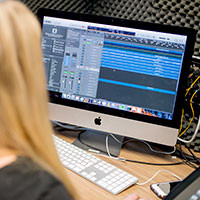
Music BTEC
The BTEC Foundation Diploma in Music is a highly practical and creative course that aims to give students the opportunity to hone a range of...
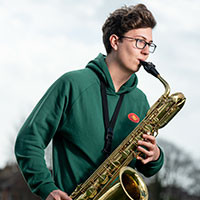
Music Theory
Grade 5 Theory is recognised as a landmark musical achievement and is equivalent in standard to GCSE Music. A pass in Grade 5 Theory is also a prerequisite for any student who wish...
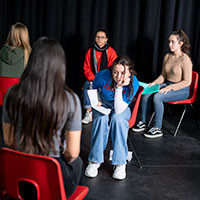
Performance (Acting) BTEC
BTEC Performing Arts is a practical course that is designed to support student skill development. With reflective practice at the heart of all that we do, A BTEC in Performance wil...

Philosophy A Level
The A Level Philosophy course is taught in a thematic way, covering four themes: Epistemology Ethics (or Moral philosophy) Philosophy of Mind (or met...

Photography A Level
Welcome to the Visual Arts Department at BHASVIC. Photography is one of four subjects we offer at A-level. The first year of Photography is all about discovery. We wan...

Physical Education A Level
Physical Education (PE) isn't just about sport, it is about developing a knowledge of the impact sport can have on health, well-being and the human body. Areas studied ar...

Physics A Level
You will study forces, motion, electrons, waves and photons in the first year. Throughout this subject and especially in the second year you will apply your knowledge to astrophysi...

Politics A Level
Politics is a brilliant course for anyone with an interest what the world is like, how it works, and what it should be like. We have excellent relationships with local and national...

Psychology A Level
Topics include conformity, obedience, resisting obedience, influences on social change, memory and why we forget, eye-witness testimony, development of attachments, maternal depriv...
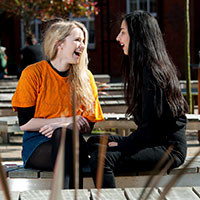
Religious Studies A level
There are three elements to Religious Studies. The first is a study of religion. At BHASVIC we choose to study Buddhism because it has been the most popular option when students ha...

Sociology A Level
Sociology explores society and the interaction between institutions and individuals. You will study research in areas such as culture, socialisation, youth subcultures, globalisati...

Spanish A Level
You will learn to communicate fluently in the language both orally and in writing. You will read and listen to authentic material in order to develop your comprehension skills and ...

Sport BTEC
Within the Sport courses you will study a range of units over the two years which include Anatomy and Physiology, Fitness Testing & Training Programmes and Sports Leadership. T...
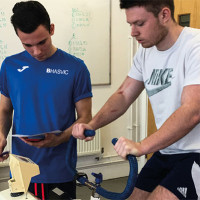
Sport and Exercise Science BTECs
The sports industry is broad and includes both scientific and more applied, practical sectors. To represent this, you will study a range of units with academic and vocati...

Sports Performance: Basketball / Beach Volleyball / Football / Netball
If you're a committed individual whose aim is to play regularly and to progress in sport then Sports Performance will benefit you during your time at BHASVIC. Throughout the durati...

Textile Design A Level
Welcome to the Visual Arts Department at BHASVIC. Textiles is one of four subjects we offer at A-level. The first year of Textiles is all about discovery. We want to get to know y...

Women's Football Academy
BHASVIC Women’s Football Academy offers UEFA coaching where you will train three times per week before taking part in college fixtures on Wednesday afternoons. The programme ...
